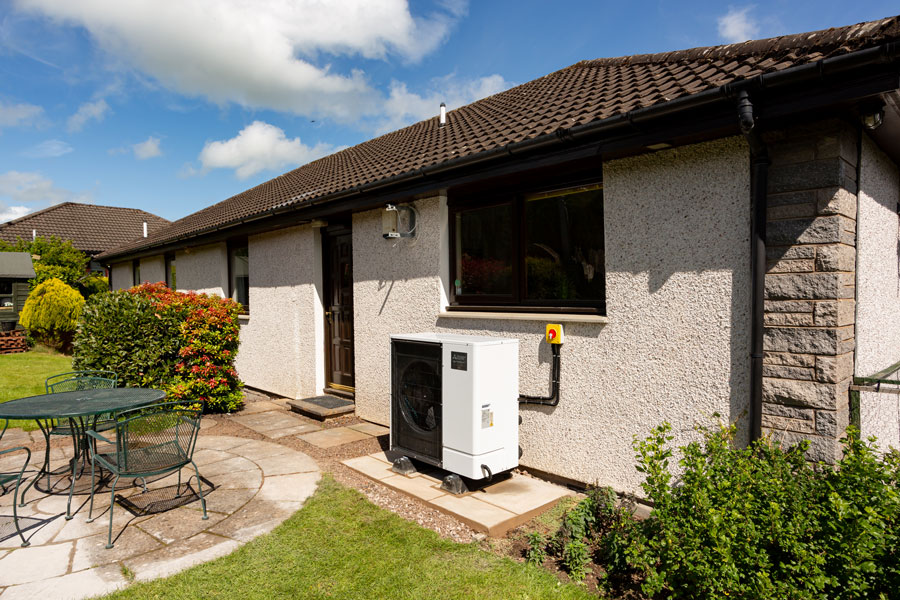The Energy Systems Catapult has launched the first ever trial of its Warm Home Prescription (WHP) programme in conjunction with leading renewable energy company ScottishPower.

The trial will see the installation of improved energy efficiency measures, such as upgraded or new home insulation and even air source heat pumps, as part of ongoing efforts to support vulnerable customers living in homes with low Energy Performance Certificate (EPC) ratings.
As before, the team at Catapult will work with local NHS authorities to identify low-income households where people live with health conditions that are sensitive to a cold or damp indoor environment and would benefit from warmer, healthier homes.
Under the new partnership, once those homes are identified by the Catapult team, ScottishPower will arrange to supply and install appropriate improvements. This may include upgraded or new insulation in lofts, cavity walls and under floors, upgraded heating systems like air source heat pumps and even, where suitable, solar panels.
These types of improvements can help customers reduce the amount of heat lost throughout the building itself and increase the warmth within the home. All of these actions could help the household to reduce its energy consumption, make homes warmer and more comfortable and in turn save on annual household energy bills. Warm homes can keep people healthy in their home and potentially avoid unnecessary hospitalisation.
The cost of the upgrades will be delivered at no cost to the householder as part of ScottishPower’s Energy Company Obligation (ECO), a UK Government scheme which sets the targets for all major energy suppliers to help improve homes across the country.
The WHP trial is exploring a new way of targeting that government support for low-income households and aims to help in the allocation of home upgrade measures to those who need them the most, by helping their home become warmer and healthier, cheaper to heat and has less impact on the environment.
Previous trials run by the Catapult delivered the Warm Home Prescription to over 1,000 homes in 2021/22 and 2022/23. Through first of its kind use of NHS data and householder feedback, emerging evidence showed a decrease in primary care usage.
A survey revealed over three-quarters (76%) of participants were more likely to welcome energy efficiency improvements in their home after experiencing a warm home because of the trial.
By working with an energy supplier for the first time, the Catapult aims to scale the trial further and deliver measures for 1,000 households in partnership with ScottishPower with a long-term ambition of supporting up to 2,000 households.
Rebecca Sweeney, Business Leader – Homes, at Energy Systems Catapult said:
“By investing in new and crucial ways of targeting support for households, such as the Warm Home Prescription, we can better support society’s most vulnerable.
“The first-of-its-kind partnership with ScottishPower is a step change in how we target support. We know that Warm Home Prescription delivers beneficial results for low income and vulnerable consumers, so to be working with a national energy supplier in rolling this support out will pay dividends.
“This coordinated delivery alongside a national energy supplier has the potential to reshape how we deliver Warm Home Prescription across the UK. We don’t want to stop here. If there are others – be they energy suppliers or energy organisations – we want to hear from you to help eradicate cold homes across the country.”
Mark Murphy, Head of UK Government Obligations at Scottish Power said:
“We know first-hand how much of a difference energy efficiency measures can make to households. For those dealing with illnesses that are made worse by living in a cold home, these upgrades could be life changing. Our aim is to deliver ECO4 home improvements, and their benefits, sooner rather than later, the quicker we deliver the sooner recipients can live in a warmer home.”
He added: “The Warm Home Prescription trial’s success is an example of how retrofitting vulnerable homes with insulation and other clean technologies can improve quality of life for customers, while making homes more energy efficient and cheaper to heat in the process.
“The fact that three quarters of former participants would install measures in their homes after the trial shows the value of vital support schemes in delivering better outcomes for energy customers across the UK.”